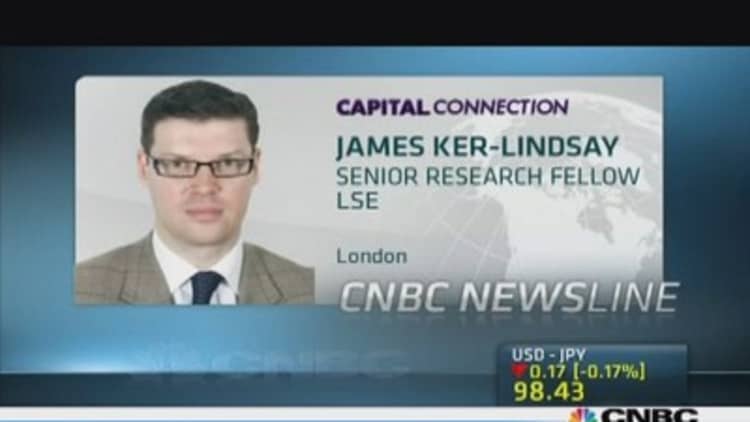International investor interest in Turkey's residential property market is rising thanks to several years of stellar house prices.
Julian Walker director at Spot Blue International Property told CNBC that property prices in Turkey "remain really quite competitive to other parts of the world." The country's residential property prices rose 12.5 percent in the 12 months to the end of September according to the Knight Frank Global House Price Index.
(Read more: Istanbul train links Europe with Asia)
"For quite a while now I've thought Turkey is a sleeping giant" Nicholas Barnes head of research at Chesterton Humberts told CNBC. He thinks that the best opportunities are located in the "beachy" locations along the country's Western and Southern coastline. "There are plenty of opportunities for lock and leave beach tourism [or your] typical holiday home."
"You can pay a million pounds upwards for a swanky apartment but equally you can get mid to budget end properties as well," Barnes told CNBC. "So whatever suits your pocket, you can find there."
(Read more: Investing in Europe's Fastest-Growing Economy)
Apartments in Turkey's coastal resorts go for as little as $50,000 and villas are around $300,000, according to Spot Blue's website. Similar apartments in Spain range from $100,000 to $250,000 with villas going for around $400,000.
Barnes added "People who are worried about what's happening in Spain at the moment might think gosh Turkey is a better bet. It's cheaper and arguably [there is] less risk attached."

But Turkey's capital, Istanbul, is also attracting a lot of attention. Walker told CNBC: "We have more activity in Istanbul [rather] than the coastal resorts." He added: "Every 10 out of eight sales are going to be apartments."
A typical one-bedroom apartment in Turkey goes for around $80,000-$100,000 dollars or $130,000-$160,000 for a two bed according to Walker. Contrast this to Paris, where one bedroom apartments start at around $300,000.
Turkey is engaged in a long-running bid for membership to the European Union and if successful, it could push property prices up further. As such, Barnes recommends making a play before sooner than later. "I think prices across the board will go up once they join the EU. This will be for all goods and services, including property."
(Read more: )
The country's booming tourism sector is also helping the uptick in residential property prices. The UN's World Tourism report ranked Turkey sixth for the number of arrivals in 2012 alongside more typical European holiday destinations such as France, Spain and Italy. Nick said "I wouldn't have thought to put Turkey in my top ten. They're clearly pursuing a fast track tourism policy."
The government is also using legislation to make its property market more attractive. Last May it abolished restrictions that insisted that a foreign buyer could only buy a Turkish property if a Turk was able to buy in that investor's country. In October this year the Turkish government streamlined the process of getting military approval – a process that's essential if you want to get the title deeds to a property.
Whilst the potential returns are high there are risks attached. "The first risk is political instability" Barnes told CNBC. "[There are] flare-ups of extremism but by and large they're pro-Western." The AKP party has been in power since 2002, but the political climate has been punctuated by periods of instability. In June this year, protestors clashed with the Turkish government over plans to bulldoze and develop a park in central Istanbul.
And while Turkey's residential property market may be a good investment opportunity at present, the returns depend on the secondary market, and that is a lot harder to forecast. "Whilst it's a growing market it's not yet what you'd call an established market. As with anything that's not established you don't know what the secondary trading is going to be like" said Barnes.
Follow us on Twitter: @CNBCWorld

